#bicameral
Text
I’ve been thinking about the Bicameral Mind and AI and I think Joyce is on to something, sort of. Which is to say that the noticed pattern is there, but he doesn’t interpret it quite right.
What I see in these stories that are used to describe a “bicameral mind” is something a bit more interesting. The stories themselves are extremely interesting because they seem to take everything that happens *literally*. Ares doesn’t just show up as a voice in some person’s brain. He isn’t just heard. He’s not even just seen and heard. He participated in the battle to the point of not only killing people, but being wounded and bleeding. Abraham doesn’t just hallucinate god, but makes god a literal meal that he (and his companions) eat. Zeus is literally born, is literally a baby who cries and who can be killed.
Even heaven and the afterlife are extremely literal. Hades is underground, and in fact can be visited through caves. Olympus is a mountain. The gods and the spirits of the dead eat and drink. Plato actually warns followers not to drink from the well of Lethe so they can remember who they were when reborn. Persephone is condemned to hades for every seed of a pomegranate she ate in Hades.
The people writing this stuff are taking everything that happens in these stories quite literally. The gods literally eat and drink, get wounded, live in physical bodies in physical places. The dead likewise live underground (where they were buried) in a place that, being underground can be visited through caves. This is very concrete thinking, and the beings thought about are concrete beings.
So my thought is that it doesn’t have to be a hallucination at all. It’s simply that in the era when these stories were first recorded, the people writing them cannot fathom anything beyond actual physical realities of life on earth. They cannot think abstractly. Life after death is literally that — a continuation of exactly what happens on Earth, complete with eating and drinking and in a physical world that while underground, isn’t that much different than life above ground. They write their gods as physically showing up because they can’t really conceive of a being that doesn’t audibly speak, and can’t comprehend one that doesn’t have a physical body much like a human does. They can’t understand the idea of an abstract reality where god or the gods are simply spirits that don’t have real bodies. They can’t conceive of a dead sprite who is just floating around.
What I think people miss is just how much our understanding of the universe has changed even since then. Our minds have learned to think about abstractions, and then to think about abstractions abstractly. When we still worked with machines directly, the idea was create a device to directly do one thing. A machine to make one type of part. Later we created a machine that we could give direct instructions to so it could do lots of things (and most people use a pocket version to play candy crush). AI is a step farther into meta cognition— not only are we not directly creating the thing, nor are we building something to create the thing, we’re not even creating a device we can give instructions to to make the thing. AI is creating a thing that we teach to understand things and thus it can figure out for itself how to make things.
In the year 1000 BC, everything was on a very low level, directly experienced by sight, smell, touch, etc. You raised sheep, and your idea of math was counting sheep adding new lambs and subtracting those eaten by lions. There was no need for a deeper understanding of that. Real things do real things. Once you get into having a government, you need to think abstractly, begin to use numbers to keep track of taxes, people, goods, and so on. As society gets more complex, you need to be able to think more and more abstractly. Not just taxes paid, but anticipating trends like weather, military activity, trade. Eventually as science answers more questions, you not only need to anticipate but shape events.
3 notes
·
View notes
Photo

(via Second Decan Pisces, Nine Water, Happiness) Nine Water radiates an optimistic view of the future, the coming new cycle, grounded on achieved stability as a result of Jupiter's influence. A sense that all will be well, the root of Nine of Waters's title Happiness.
#tarot of the morning star#tarot cards#tarot reading#tarotcommunity#tarot art#astrology#magick#kabbalah#qbl#psychic#intuition#bicameral
0 notes
Text
Acuerdos pendientes en proyecto de ley de convocatoria a elecciones judiciales en Bolivia
Después de una reunión de varias horas, la comisión multipartidaria y bicameral logró consensuar un proyecto de ley de convocatoria a elecciones judiciales en Bolivia. Sin embargo, aún quedan dos puntos por acordar respecto a la forma de votación y la autoprórroga de los magistrados.
View On WordPress
#Andrónico Rodríguez#Autoprórroga#autoridades del Legislativo#bancadas.#bicameral#Bolivia#comisión multipartidaria#elecciones judiciales#forma de votación#Magistrados#presidente del Senado#Proyecto de ley#Reunión.
0 notes
Text
Modern Academic Says Gods Spoke to Ancient Greeks
0 notes
Text
HD tiny teen asian cute young girl gets big black cock breaking her asshole
slim teens dance on cam [Sunny rosy]
Nude schoolgirl works dicks in class like a porn diva
Upskirt in cinema
Indian gf with bf video call
Gay boxer boy and italy boys penis xxx The BSB workweek starts with
Gordinha peituda e gostosa
Busty MILF GangBanged in Glory Hole
Old man piss young boy gay sex and to videos first time Poor British
Close Up Pussy Licking Compilation
#dipteran#pyramides#childishnesses#SS-10#bicameral#crepe-backed#antighostism#Kadai#glossological#levorotatory#preenaction#snippersnapper#frumenty#dullbrained#hexactinelline#compilator#countertreason#periwinkles#counsellors#Heraea
0 notes
Note
What’s the case for an upper and lower chamber?
In my opinion, none.
The historical situation is that the upper chamber had more power and the lower was a sop to the common folk and petty nobility: this is why the House of Commons was formed (originally from knights of the shire and the representatives of cities that had been granted special rights by the Crown), and only later, after a very long process of constitutional evolution in Britain, did the Lords transform into a consultative body that was adjunct to the Commons, where the real power lay. For a while, even after you started to have something that looked like modern government in Britain, you still frequently had PMs drawn from the Lords--and still could, in theory, except that the convention is they come from the Commons.
In the U.S. example, the goal was simply to split the difference between a popular chamber (the House) and a chamber representing state governments (the Senate, whose members could be chosen by any method provided for under state law, but originally were usually chosen by state legislatures). This is because the people who drafted the U.S. constitution hated and were suspicious of popular democracy, because they were rich landowners and slaveholders whose positions were untenable in the long run if everyone in the country could vote and was equally represented.
Obviously they didn't put it like that--they spoke of the hotheaded hoi polloi, the changeable will of the people--but they were massive Romeaboos, and all the populist leaders who whittled away at the Roman republic managed to do so because they were willing to centralize power, to take it away from the baronial elite of the Republic, and to use that power in service of people further down the org chart. In service of themselves too, of course--these were not altruists--but it was the particularly Roman instantiation of the crown-vs-barons struggle, where the common folk usually side with the Crown, because the barons are bastards who abuse them directly.
(Very many "tyrants" in history were "tyrants" only in that they gave a raw deal to the barons in their particular social order, and very many events which we now describe as movements toward a more equitable distribution of power were in fact a very shitty deal for the majority of the population--the peasants--because it gave the barons even more license to abuse their serfs.)
And the American founders knew all this, and they were all barons, and they didn't like the idea of a federal government that was too effective, so they sprinkled it with veto points and also totally failed to anticipate the rise of modern political parties. (Which weren't exactly what they had in mind when they warned against factionalism--that was more about sectional interests. But still, they did totally fail to anticipate how this system would work as party politics developed.)
In a system of democratic government like the U.S. has now, where it is widely acknowledged the rule should be "one adult citizen never convicted of a felony who can get the day off work to stand in line and has a photo ID = one vote" the U.S. Senate is an inexcusable anachronism. Indeed, the Supreme Court has ruled that state senates modeled on the exact same principle as the U.S. senate (say, one county one senator, as the constitution of my home state Tennessee has it) are unconstitutional, because they violate the equal protection clause.
More recently, many countries have approached the idea of an upper chamber as a sort of "chamber of experts" meant to review and advise on legislation. This kind of makes sense in theory, I guess, but if voters want subject-matter experts to make policy, they can vote them in; in practice, any system of appointment or ex officio qualification is going to select for political lackeys without democratic mandates, and it's also just a bad idea to have people with significant power over the legislative process who do not have democratic accountability. The problem of creating legislation is never that we don't have enough smart people willing to offer their opinions; the problem is brokering functional compromises between interest groups and resolving incentives that push the process toward dysfunctional outcomes, which isn't really something you can fix just by fiddling with the composition of your upper house.
So in most modern parliamentary democracies, upper houses are reduced in power. Either they can't veto bills permanently (Lords), they can't originate money bills (Lords again), they only have input on certain matters (German Bundesrat), they're full of government appointees to ensure the government always has a majority in them (Irish Seanad), or the lower house can overrule them on most matters (Japanese House of Councillors). And the reason why is obvious: if your democratic mandate comes from the lower house, if that's where your government is being formed in a parliamentary system, if the whole principle of government is meant to be collective self-rule by the body of citizens, an upper house that is a check on that power is either definitionally redundant or a brake on democracy.
There are ways to ensure that a lower house is both representative and does not devolve into factional chaos. Proportional representation, four-year terms, constructive motions of no confidence (again, parliamentary systems only), etc. Plenty of countries and subnational entities have unicameral legislatures and are perfectly stable: Sweden, Norway, the Baltics, Portugal, Mongolia, South Korea, Peru [ok bad example nvm], all the states of Germany, all the provinces of Canada, most of the provinces of Argentina, Queensland, the vast majority of the states of India, and the three devolved legislatures in the United Kingdom.
Therefore in my opinion there is no good democratic case for an upper house. And all the undemocratic reasons why you'd want one are bad. Too much democracy is, in fact, a very rare problem for systems of government to have!
119 notes
·
View notes
Photo

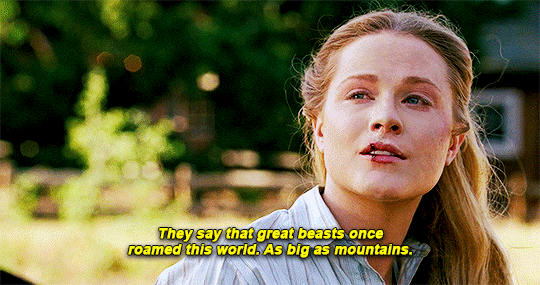











WESTWORLD ⇢ 1x10 | THE BICAMERAL MIND
Aw, yeah, cue the waterworks. About time you realized the futility of your situation. Wyatt. Take me to him. Unlock the maze. The maze wasn't meant for you.
#westworld#westworldedit#dolores abernathy#william#the man in black#man in black#1x10#westworld 1x10#the bicameral mind#mygifsets#mygifs#myedits
792 notes
·
View notes
Photo

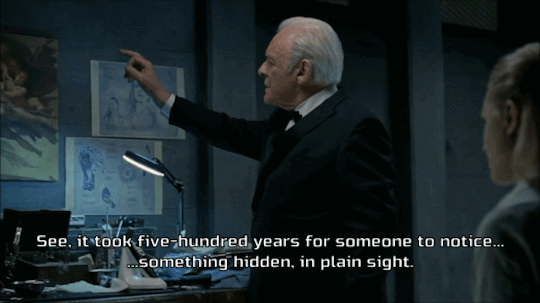


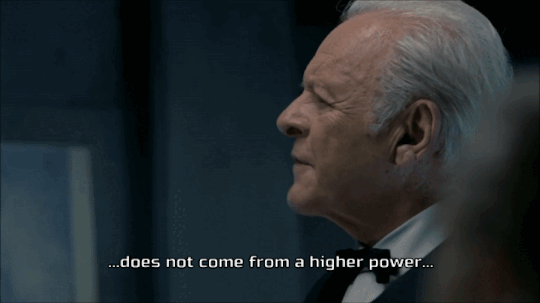


‘‘ Tell me, Dolores, did you find what you were looking for..? ’’
#the bicameral mind#ford#dolores#evan rachel wood#sir anthony hopkins#motherfucking storytelling#westworld#animated gifs of an old post idea#michelangelo#creation#consciousness
192 notes
·
View notes
Text


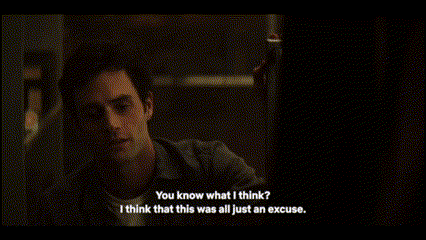

#operation mario#white knights#fake ass male feminist#better call saul#jimmy mcgill#westworld#william delos#you netflix#joe goldberg#the softboy epidemic has gone terminal#BCS S3E5 “Chicanery”#WW S1E10 “Bicameral Mind”#YOU S1E10 “Bluebeard's Castle”
7 notes
·
View notes
Text
Ep 279: The Third Man Syndrome Part 1
"Who is the third who walks always beside you? When I count, there are only you and I together But when I look ahead up the white road There is always another one walking beside you" -- The Waste Land by T. S. ELIOT
Description:
A strange occurrence often happens to people engaged in an adventurous activity or who fall victim to an unfortunate circumstance. They find themselves with a companion whose presence would typically be impossible. Usually, the person is at a critical moment in a life-or-death situation in an extreme and unusual environment. When they are weakened and dying from exposure, suffering privation of sustenance, lost and alone, when they are about to lose all hope and accept their demise, that’s when this otherworldly friend suddenly appears to render aid and encouragement, giving them a superhuman will or strength to survive. Psychologists label this a “sensed presence experience” but are at a loss for a simple explanation. These presences may be seen, heard, and sometimes even touched. They appear in dire situations to people from all walks of life. They may materialize as a known friend, a deceased relative, a religious figure, or an indeterminate benefactor. Still, whatever their form, there is no doubt to the one in danger that this being is real and there with them. Although this sensed presence appears most often to mountain climbers, sailors, divers, and polar explorers, it can also happen to astronauts, prisoners of war, and disaster survivors. One of the most intriguing aspects of the sensed presence experience is that the ethereal saviors aren’t just there to provide comforting words; they actually help with knowledgable advice or guidance or can even seemingly take over the actions of the afflicted – whatever is necessary to increase the odds of survival. Join us as we explore a phenomenon more common than you might think, a syndrome also known as the “Third Man.”
Reference Links:
“The Sensed Presence as a Coping Resource in Extreme Environments”
by Peter Suedfeld & John Geiger. From Miracles: God, Science, and Psychology in the Paranormal on Omnilogos.com
“The Sensed Presence as A Coping Resource in Extreme Environments” on the Julian Jaynes Society website
“How does our understanding of the sensed presence phenomenon in extreme settings change the way we talk about so-called mental ‘illnesses’ in daily life?” by Blaise Cottingham on Medium.com
Angels of Mons on Wikipedia
Vincent Lam
“Extreme environment” on Wikipedia
King Nebuchadnezzar from Daniel 3:24-5 on BibleGateway.com
The Savage Curtain episode of the original Star Trek series
“Charles Lindbergh and the Third Man Factor” on Theresa's Haunted History of the Tri-State blog
Poet, memoirist, and songwriter Mary Karr
“The Liars’ Club” by Mary Karr
Kanchenjunga, the world’s third highest mountain, on Britannica.com
“Wilson,” the volleyball from the motion picture Castaway
“Ernest Shackleton's Crew of the Endurance – Imperial Trans Antarctica Expedition 1914 -17” on CoolAntarctica.com
Husvik, the former whaling station on the north-central coast of South Georgia Island, Antarctica
Elephant Island, Antarctica
“Excerpt: The Voyage of the James Caird by Ernest Shackleton” from the American Museum of Natural History website
Alfred Lansing
Caedmon, widely considered to be the world’s first audiobook and launch of the spoken word industry
“The Waste Land” by T. S. Eliot on Project Gutenberg
Stromness, South Georgia
Sir Ernest Shackleton and T S Eliot’s ‘third man’ from the Royal Scottish Geographical Society
The Waste Land Part I – The Burial of the Dead from the Poetry Archive
The Waste Land from The Poetry Foundation
“T. S. ELIOT SAW ALL THIS COMING” from The Atlantic
The Waste Land on Wikipedia
Jane S. P. Mocellin and Peter Suedfeld’s research on behavior in extreme environments from ResearchGate.net
“Shackleton's whisky returned to Antarctic hut” on CBC.ca
“Spirits of the South Pole” from The New York Times Magazine
“Wild Survival Story About 1983 Rockies Alpine Avalanche” – the story of Jim Sevigny and Richard Whitmire
Distance Line for cave diving
“UK scientist has her lab in underwater caves” – Stephanie Schwabe article from the Lexington Herald-Leader
Kendal Mint Cake on Wikipedia
Romney’s Kendal Mint Cake on Amazon
Reinhold Messner
“The Unauthorized Biography of Reinhold Messner” music album by the band Ben Folds Five
Related Books:
Suggested Listening:
Find us on YouTube!
Click this text to find all Astonishing Legends episodes and more on our Youtube Channel https://www.youtube.com/c/Astonishinglegends
Join us on Patreon!
Click HERE or go to patreon.com/astonishinglegends to become one of our Patreon members and receive exclusive offerings, like our bonus Astonishing Junk Drawer episodes (posted every weekend the main show is dark) commercial-free episodes, and more!
SPECIAL OFFERS FROM OUR SPECIAL SPONSORS:
FIND OTHER GREAT DEALS FROM OUR SHOW’S SPONSORS BY CLICKING HERE!
CREDITS:
Episode 279: The Third Man Syndrome Part 1. Produced by Scott Philbrook & Forrest Burgess. Audio Editing by Sarah Vorhees Wendel of VW Sound. Music and Sound Design by Allen Carrescia. Tess Pfeifle, Producer and Lead Researcher. Ed Voccola, Technical Producer. Research Support from The Astonishing Research Corps, or "A.R.C." for short. Copyright 2024 Astonishing Legends Productions, LLC. All Rights Reserved.
#2024#279#Third Man Syndrome#Third Man Factor#Third Man Phenomenon#sensed presence experience#extreme and unusual environments#John Geiger#Peter Suedfeld#Ernest Shackleton#South Pole#Reinhold Messner#guardian angel#Spirit Guides#higher self#astral self#bicameral mind#Lindbergh#Antarctica#Mount Everest#cave diving
8 notes
·
View notes
Text
Third Decan Aquarius, Tarot Seven Swords
Tarot Seven Swords, Seven Air, Unstable Effort
Tarot Seven Swords, Seven Air, is allocated to the third decan of Aquarius.
Each of the Minor Arcana cards numbered seven express attributes of Netzach. Netzach is the seventh sphere on the QBL Tree of Life, whose title is Victory, corresponding with astrological Venus.
Sephirothic Planetary Correspondence
Sephirothic Planetary Correspondence…

View On WordPress
#astrology#bicameral#divination#divination cards#magick#minor arcana#mythology#symbolism#tarot#tarot cards#tarot deck#tarot images#tarot paintings
0 notes
Text

Cosmos
* * * *
“The first poets were gods. Poetry began with the bicameral mind. The god-side of our ancient mentality, at least in a certain period of history, usually or perhaps always spoke in verse. This means that most men at one time, throughout the day, were hearing poetry (of a sort) composed and spoken within their own minds.”
― Julian Jaynes, The Origin of Consciousness in the Breakdown of the Bicameral Mind
[alive on all channels]
#Julian Jaynes#The Origin of Consciousness in the Breakdown of the bicameral Mind#consciousness#alive on all channels#quotes
12 notes
·
View notes
Text

"Have you ever questioned the nature of your reality?"
BlueBic! Teague (Westworld AU) , something I've been playing around with
#Blue Bicameral AU#atwow#avatar the way of water#avatar recoms#avatar oc#recom oc#my oc#my art#atwow au#westworld au
16 notes
·
View notes
Text
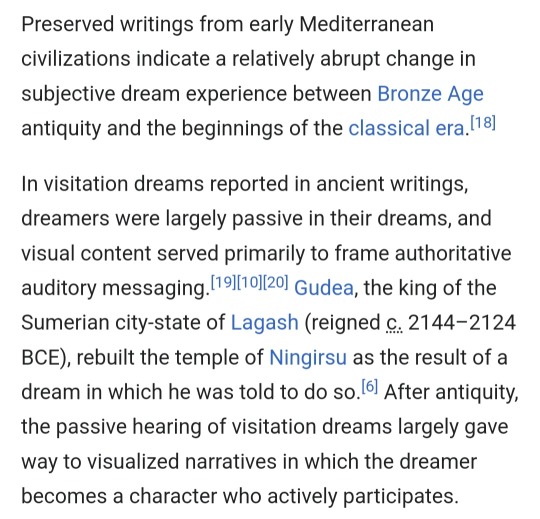
26 notes
·
View notes